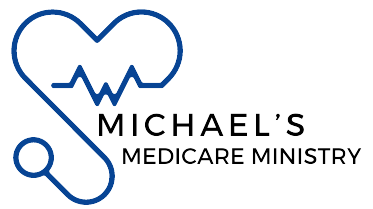Exploring Medicare Options as You Approach 65
Turning 65 is a major life milestone—and when it comes to your medicare insurance, it’s one of the most important turning points you’ll encounter. Many Americans become eligible for Medicare at 65, which means your health insurance options shift significantly. But what exactly changes, and how do you make the most informed decision?
If you’re approaching 65 and live in Beaverton, OR, you’re not alone in trying to navigate these choices. Resources like MichealsMedicareMinistry in Beaverton can be helpful for those seeking guidance on Medicare plans and supplemental coverage, offering local insight into the options available. For personalized guidance call
📍 Visit: 15125 SW Ruby Ct, Beaverton, OR 97007
📞 Call: +1 (503) 828-2328
📧 Email: wmichaeljarman@gmail.com
Let’s dive into how turning 65 reshapes your health insurance landscape—and what steps you should take next.

Medicare Eligibility Begins at 65
When you turn 65, you typically become eligible for Medicare, the federal health insurance program primarily for older adults. If you’ve worked and paid Medicare taxes for at least 10 years, you’ll likely qualify for premium-free Part A (hospital insurance). You’ll also become eligible for Part B (medical insurance), which covers doctor visits, outpatient care, and preventive services.
- Turning 65 opens a 7-month Initial Enrollment Period (IEP):
- 3 months before your birthday month
- The month of your 65th birthday
- 3 months after your birthday month
Missing this window may result in late enrollment penalties, so timely action is crucial.
Your Pre-65 Health Insurance Doesn’t Automatically End—But It Will Likely Change
If you’re still working and have employer-sponsored coverage, or if you have an individual ACA (Marketplace) plan, you might be wondering whether you need to drop your current plan. Here’s what you need to know:
- Employer-Sponsored Insurance
If your employer has 20 or more employees, you can usually keep your group health plan and delay Medicare Part B without penalties. However, compare costs and coverage—Medicare may save you money or provide better benefits. - Marketplace (ACA) Plans
Once you’re eligible for Medicare, you’re no longer eligible for ACA subsidies, which means keeping your Marketplace plan becomes significantly more expensive. It’s generally better to transition to Medicare. - COBRA or Retiree Coverage
These do not count as creditable coverage for delaying Medicare Part B. If you rely solely on COBRA or retiree benefits after turning 65, you may face penalties and gaps in coverage unless you enroll in Medicare on time.
What Are Your Medicare Options at 65?
Medicare isn’t just one plan—it’s a system of parts that you can tailor to your needs. Here’s a quick breakdown:
Original Medicare (Parts A & B)
- You can visit any doctor or hospital that accepts Medicare.
- It doesn’t cover prescription drugs, dental, vision, or hearing.
Medicare Advantage (Part C)
- These are private plans approved by Medicare.
- Often includes Part D (prescription drugs) and extras like dental or vision.
- May require using a network of providers.
- Out-of-pocket maximums are capped, unlike Original Medicare.
Medicare Part D (Prescription Drug Plans)
- If you stay with Original Medicare, you’ll likely want to add a Part D plan.
- Helps cover the cost of prescription medications.
- Plans vary based on coverage and drug formularies.
Medicare Supplement (Medigap) Plans
- These help pay for costs Original Medicare doesn’t cover, like coinsurance and deductibles.
- You can use these plans with any provider that accepts Medicare.
- Must be paired with Original Medicare, not Medicare Advantage.
The Importance of Working With a Local Medicare Agent
Turning 65 can feel overwhelming when it comes to navigating plan types, premiums, and coverage options. That’s where expert, personalized guidance becomes invaluable.
As a trusted Medicare agent in Beaverton, I work with you one-on-one to:
- Analyze your current and future healthcare needs.
- Compare Medicare Advantage vs. Medigap plans.
- Ensure you don’t pay penalties or miss key deadlines.
- Guide you through enrollment with zero stress.
Don’t gamble with your health coverage. A quick conversation can clarify your options and potentially save you thousands over time.
When Should You Start Planning?
Start at least 3 months before you turn 65.This gives you time to evaluate your options, compare plans, and enroll on time. Waiting too long can limit your choices or result in penalties.
With the introduction of Medicare, your choices grow—but so does the complexity. The good news? You don’t have to navigate it alone.
At MichealsMedicareMinistry, they bring years of experience and a deep understanding of Medicare plans available in Beaverton and surrounding Oregon communities. Whether you’re retiring, still working, or unsure about your next step,They are here to help.
📍 Visit: 15125 SW Ruby Ct, Beaverton, OR 97007
📞 Call: +1 (503) 828-2328
📧 Email: wmichaeljarman@gmail.com
FAQs
Do I automatically get Medicare at 65?
Not always. If you’re already receiving Social Security benefits, enrollment is automatic. If not, you’ll need to manually enroll during your Initial Enrollment Period.
Can I keep my employer insurance and delay Medicare?
Yes, if your employer has 20 or more employees. But you should still compare the costs and coverage—it may be smarter to enroll in Medicare.
What happens if I miss my Medicare enrollment window?
You may face late penalties and gaps in coverage. It’s essential to enroll during your 7-month Initial Enrollment Period unless you qualify for a Special Enrollment Period.
Is Medicare better than my current insurance?
It depends. Medicare may offer broader coverage and lower out-of-pocket costs, but it’s best to evaluate your options based on your personal needs.
Do I need a Medicare agent to enroll?
Not required—but highly recommended. A licensed agent helps you avoid costly mistakes, compare plans efficiently, and ensures you make the right decision the first time.




